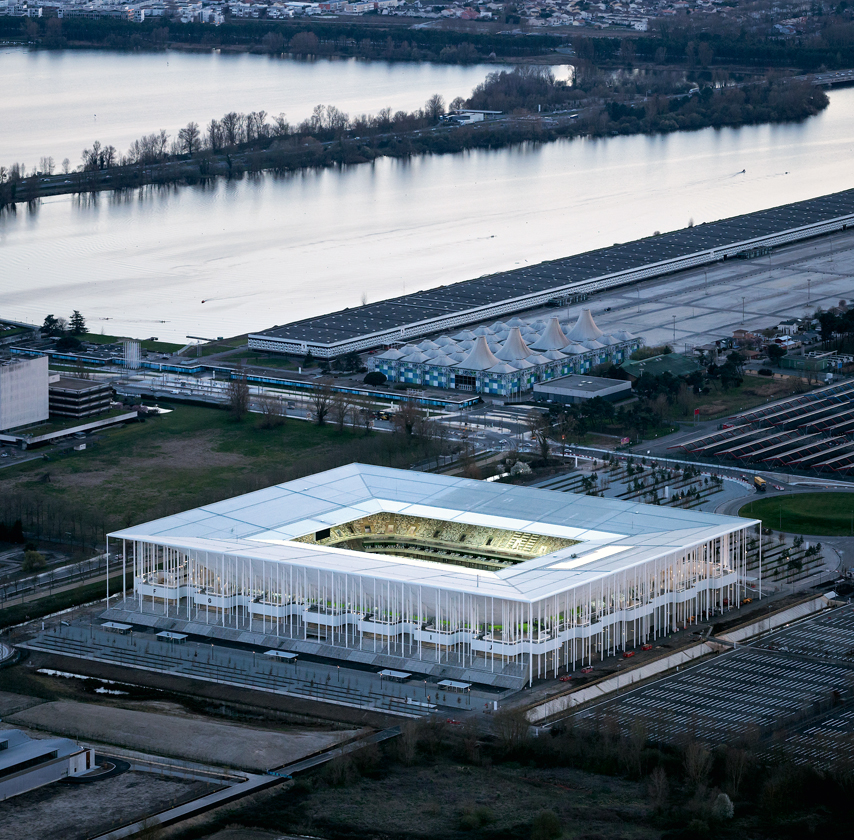Flexibility: Matmut Atlantique Stadium
Herzog and de Meuron, 2015, Bourdeaux

Home to the Bourdeaux football team in the French Ligue One.
The box is flexible. Flexibility admits the possibility of the unexpected. The box can be used for anything; the element of surprise is its main delight. Boxes house bowling alleys, shooting ranges, ice rinks, snow ramps and music concerts requiring earplugs, even if outside there is only deafening silence. Sex happens in boxes. In fact, the best sex happens in boxes in anonymous industrial parks, traceable only via obscure internet sites. With no visible indication on the outside (apart from the unusually large number of expensive cars parked in front), few would suspect. In its drive to ultimate flexibility, the box absorbs an ever-larger number of unlikely typologies: the theatre, opera, concert hall; even the ideal football stadium, for example Anfield and Stamford Bridge in the UK, Westfalenstadion in Germany, and more recently Bordeaux Stadium in France. A simple offset of the rectangular pitch – unburdened of the stadium’s outdated Roman heritage: no more arena – the box is a direct extension of the game. It involves audiences in a way no other stadium type does. In doing away with the traditional opposition between spectator and spectacle, the box appeals to players and audience alike, propelling the popularity of football to unprecedented heights.
"Ornament und Verbrechen: the box concedes to having broken modern architecture’s ground rule. With its perfect, perpendicular skin now riddled by a baroque human-made tangle of services, the box has stopped being a box. The search for flexibility has reached the end."